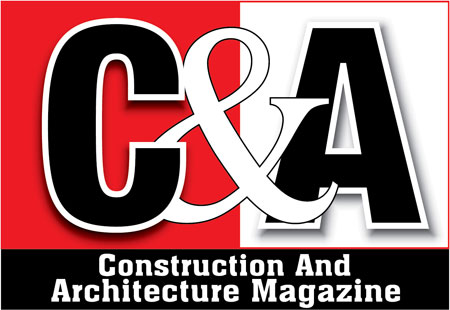Navigating the Air Compressor Landscape in Construction: Which One Fits Your Needs?
Ramesh Kumar. G, Vice President, Portables, Elgi Equipments Limited

The construction industry is a behemoth in the global economy, with approximately $10 trillion spent on construction-related goods and services each year. In India, the construction sector is expected to reach $1.4 trillion by 2025, driven by increased capital investment and urban infrastructure development plans. With such growth, the demand for air compressors in the construction sector is set to soar.
Electric and diesel-powered screw air compressors have become indispensable tools in the construction industry, providing a reliable source of compressed air for a wide range of applications. Electric screw air compressors are the go-to choose for construction sites with a stable power supply. They offer numerous advantages, including energy efficiency, lower operating costs, and reduced environmental impact. Additionally, electric compressors produce less noise, making them ideal for noise-sensitive construction sites. Their compact and portable design enables easy transportation and manoeuvrability on construction sites. At the same time, their ability to power various pneumatic and hydraulic equipment makes them essential for construction tasks that require compressed air.
In construction sites where a reliable electricity supply may not be available, or mobility is required, diesel-powered screw air compressors take the stage. These compressors are typically mounted on trailers or skids, facilitating effortless transportation between construction sites. Built to withstand dusty environments and heavy-duty applications, diesel air compressors excel in demanding construction conditions. They offer greater flexibility as they can operate in remote areas or off-grid locations without relying on an electrical power source. Diesel compressors often provide higher airflow and pressure capabilities, making them suitable for challenging construction tasks that require substantial compressed air output.
The construction industry relies heavily on electric and diesel-powered screw air compressors for various applications. Here are some notable examples:
Powering Pneumatic Tools: Electric and diesel compressors supply compressed air to power a range of pneumatic tools such as jackhammers, nail guns, impact wrenches, drills, sanders, and grinders. These compressors ensure the necessary air pressure and volume, significantly enhancing productivity on construction sites.
Sandblasting and Surface Preparation: Electric and diesel compressors are instrumental in powering sandblasting equipment for surface preparation. They deliver high-pressure air that propels abrasive materials like sand or grit onto surfaces, effectively removing unwanted coatings, rust, or corrosion.
Concrete and Shotcrete Spraying: Compressed air plays a vital role in concrete and shotcrete spraying applications. Electric and diesel-powered screw air compressors provide the required air pressure to propel concrete or shotcrete mixtures through spray nozzles onto surfaces. This makes them ideal for constructing walls, tunnels, and swimming pools.
Aggregate Production in Blue Metal Quarries: Portable air compressors find widespread use in drilling and blasting operations in blue metal quarries. Hydraulic and pneumatic crawler drills rely on these compressors to produce aggregates for the construction industry.
Overburden Removal in Coal Mines: Diesel-powered screw air compressors find application in excavator-mounted rigs for removing overburden in coal mines. These compressors provide the necessary air pressure to facilitate the excavation process.
Pipeline Cleaning for Fuel Transportation: Portable air compressors play a significant role in pigging applications, enabling the cleaning of pipelines for transporting various fuels through the same channel. These compressors provide the required air pressure for efficient and thorough pipeline cleaning.
Block Extraction in Granite and Marble Mining: The granite and marble industry utilizes portable compressors for powering pneumatic and hydraulic drills. These compressors assist in extracting blocks from mines, employing the hole-matching method to ensure precise and effective extraction.
The extensive utilization of electric and diesel-powered screw air compressors in the construction industry underscores their versatility and importance in enhancing efficiency and productivity across various construction processes.
Selecting the appropriate compressor based on specific construction requirements, site conditions, power availability, and mobility needs is crucial. Consulting with manufacturers can help determine the most suitable compressor for a construction project.
To maintain a competitive edge, manufacturers in the portable air compressor industry focus on innovation and new product development. They continuously introduce breakthrough technologies that improve fuel efficiency and productivity, reduce emissions and noise, adapt to specific application needs, optimize operation and maintenance costs, enhance serviceability, and prioritize safety – all key factors influencing customer purchasing decisions.
The demand for efficient and reliable air compressors will persist as the construction industry continues to thrive. Electric and diesel-powered screw air compressors have proven to be indispensable equipment in enhancing efficiency, productivity, and safety on construction sites. By powering construction equipment for various applications, these compressors contribute to the successful completion of projects and drive the growth of the construction sector.

